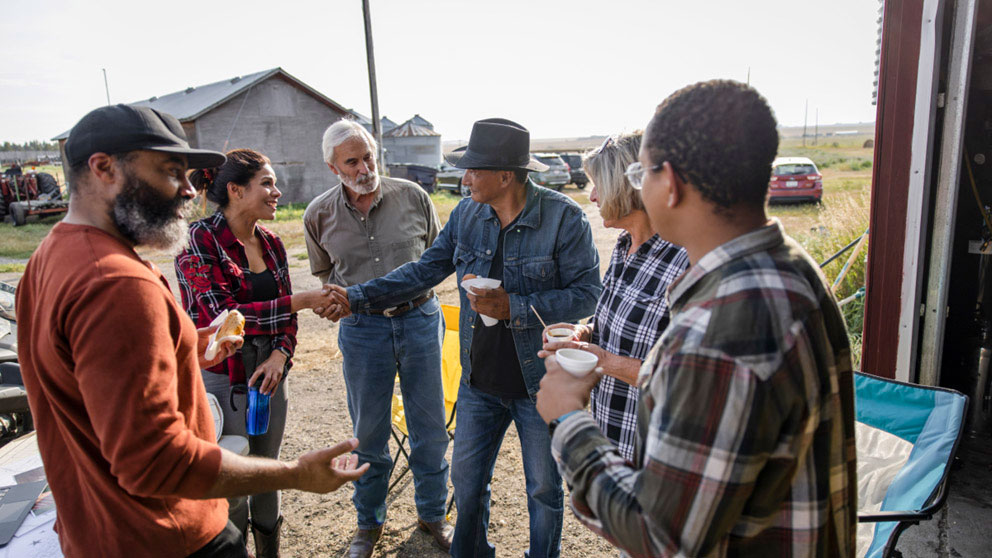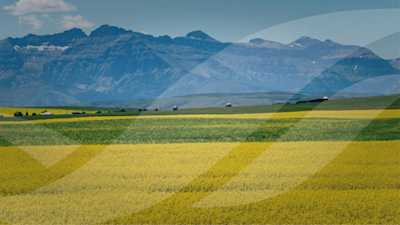Own farmland? How to set the best rental price and agreement

It’s likely that most, if not all, farmers will rent some amount of land during their farming career. And while the road from A to Z with a farmland rental agreement is never the same, there are still some bedrock principles and considerations all farmers should understand, both when setting the rental price and with agreement details.
Price
Calculate the productive value
Craig Klemmer, Thought Leadership Manager at FCC, explains that productive value is the revenue potential of the land if you were farming it yourself.
To calculate productive value: Look at your past production. When the land worth is known, market rent can be calculated.
For example: If 160 acres of land were valued at $600,000 and the estimated rate of return was 2.5%, multiply $600,000 by 2.5% and divide that by 160 to get $93.75 per acre.
Determine asset value
Asset value is the production potential, as well as local demand and the number of operators looking to rent.
As the landowner, you can determine asset value by considering the willingness in the community to pay for land and factors such as:
Return on investment (estimated appreciation of the asset over time)
Efficiency gains from maximizing equipment usage and owning property as part of a larger contiguous block of land
Other possible revenue sources the land may represent, such as infrastructure rental property
The incalculable, like sentimental value of multi-generational property
Establish your objectives
Landowners should know their objectives when renting out their land. These may include:
Maximizing returns
Finding a long-term renter
Having some input into a renter’s farm operations
Supporting the transition to the next generation
Klemmer says renting for only the sake of making money comes with potential risks. The highest bids could come from aggressive renters who overbid and are unlikely or unable to meet their obligations, leaving the landowner out of pocket.
Agreement
Open communication and expectations
As you begin your land rental agreement with a renter, the more information, the better when it comes to clear communication and understanding expectations.
If you want to know what crops are being produced and want crop updates, include those details — and any others — in the rental agreement, says J.P. Gervais, FCC Executive Vice President and Chief Economist.
Stewardship plans
Stewardship is paramount to maintaining the value of any property, be it land or a home. No housing landlord wants to see holes in the walls and missing appliances when the tenant leaves. A negligent landowner may also discover renter damage, resulting in costly fixes and losses.
Working stewardship into the rental agreement can help avoid any potential damage, Klemmer says.
“Potential impacts of a bad renter are destruction or degradation of land improvements such as tillage, irrigation equipment, or other facilities, like bins, barns and sheds,” says Klemmer.
Type of contract
Now that you and a renter have agreed to work together, it’s time to sign a contract. While split revenues and expenses are an option, the most common type of contract is a cash contract at a pre-set price. Land quality and land use will be the primary drivers in setting rates. Hay and pastureland will be much cheaper than land for cash crops such as canola, soy or corn.
Get it in writing
Think of a written contract as a business risk management tool. There are no surprises when everything is written down.
Verbal contracts are still utilized in today’s market, but are not preferred for multiple reasons.
“The first is that verbal contracts do not give clarity to important details such as rates and payment dates,” Gervais says. “If nothing is written down, it’s easy for one or both parties to say one thing one day and then another the next.”
Think of a written contract as a business risk management tool. There are no surprises when everything is written down. Future success will be more difficult to plan if you’re unable to review previous contracts. Eventually you’ll forget key details — written contracts ensure that never happens. Most importantly, they protect both parties in the event of a conflict. Verbal contracts leave everything open and could be trouble.
Points for landlords to consider
How much rent is needed to cover property taxes?
What non-monetary factors should you consider — if it’s going to cost you to clean-up the property, should you rent to a better land manager?
How will the tenant do crop rotation?
What’s the weed control plan?
How valuable is a long-term lease to you?
Article by: Richard Kamchen

How do you deal with change and the process of implementing new practices on the farm?
